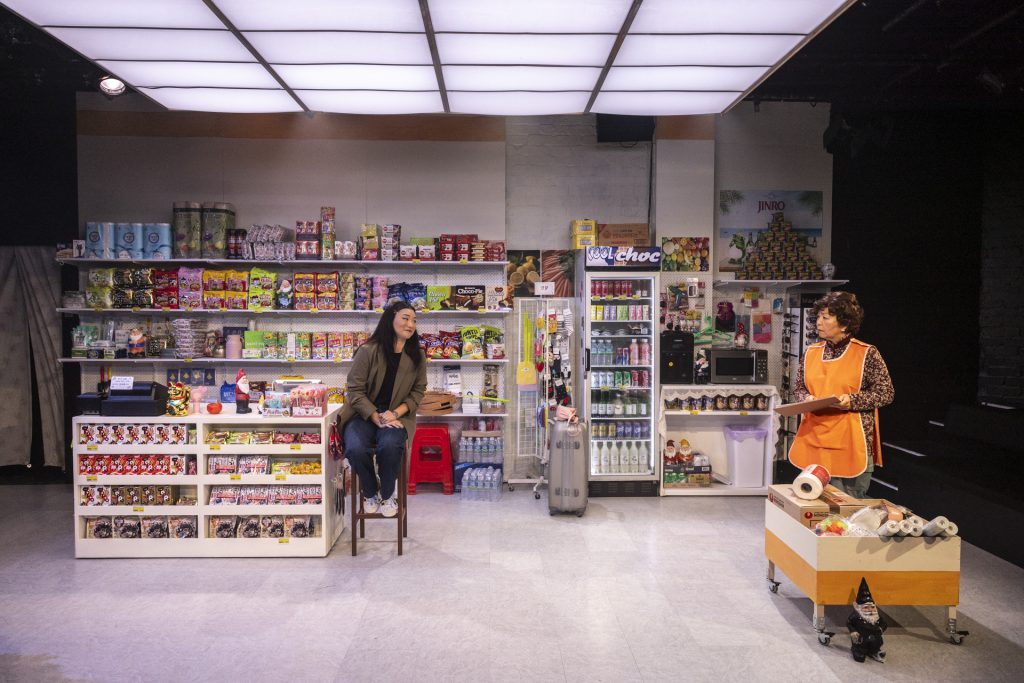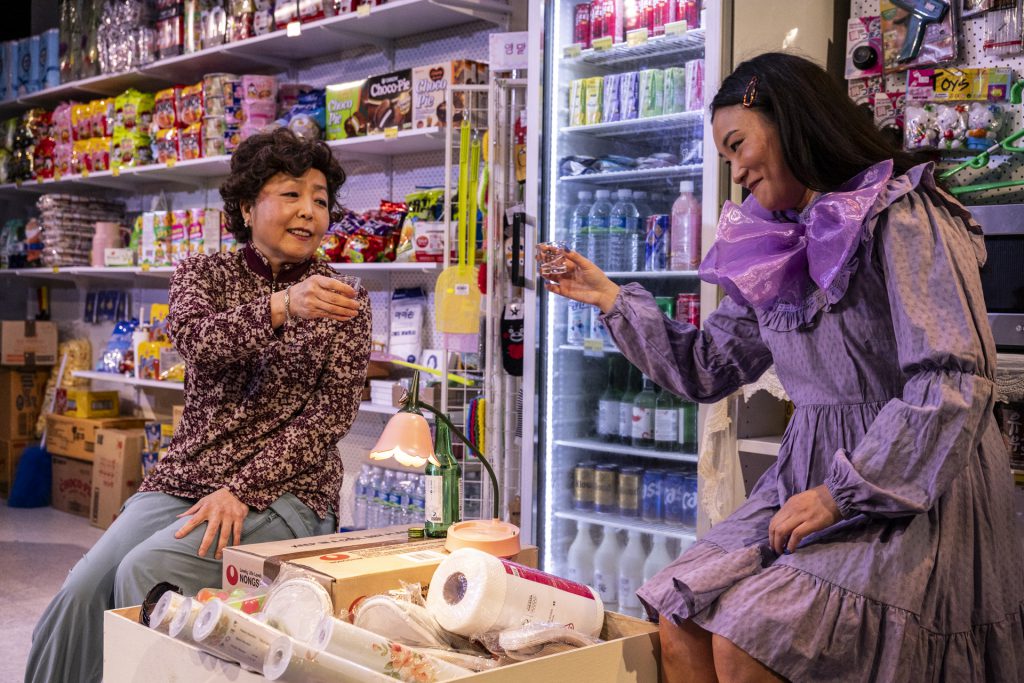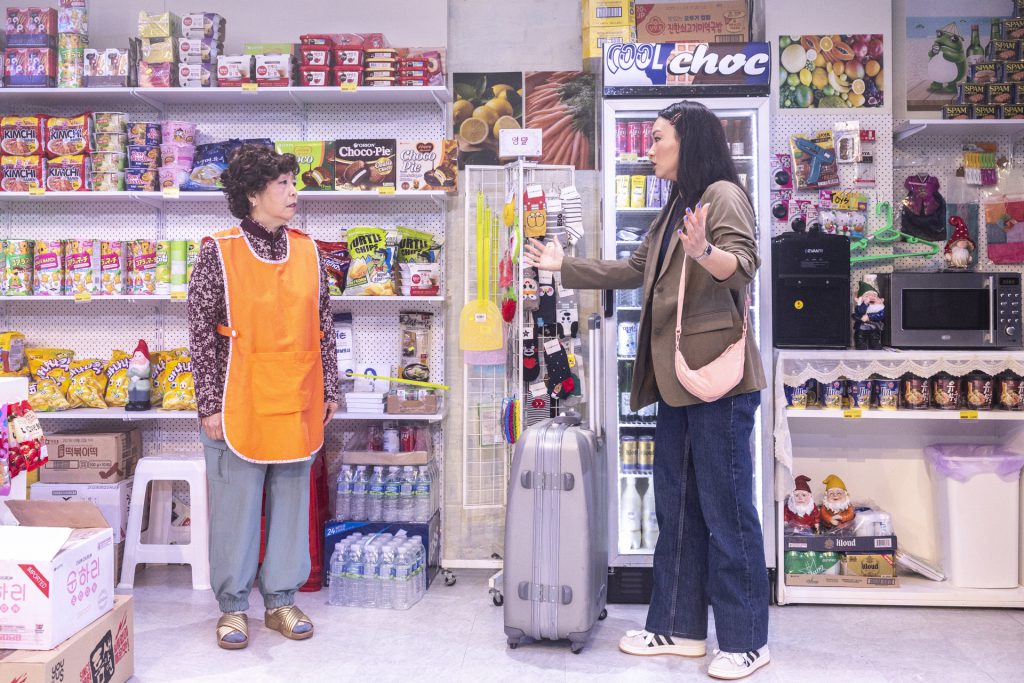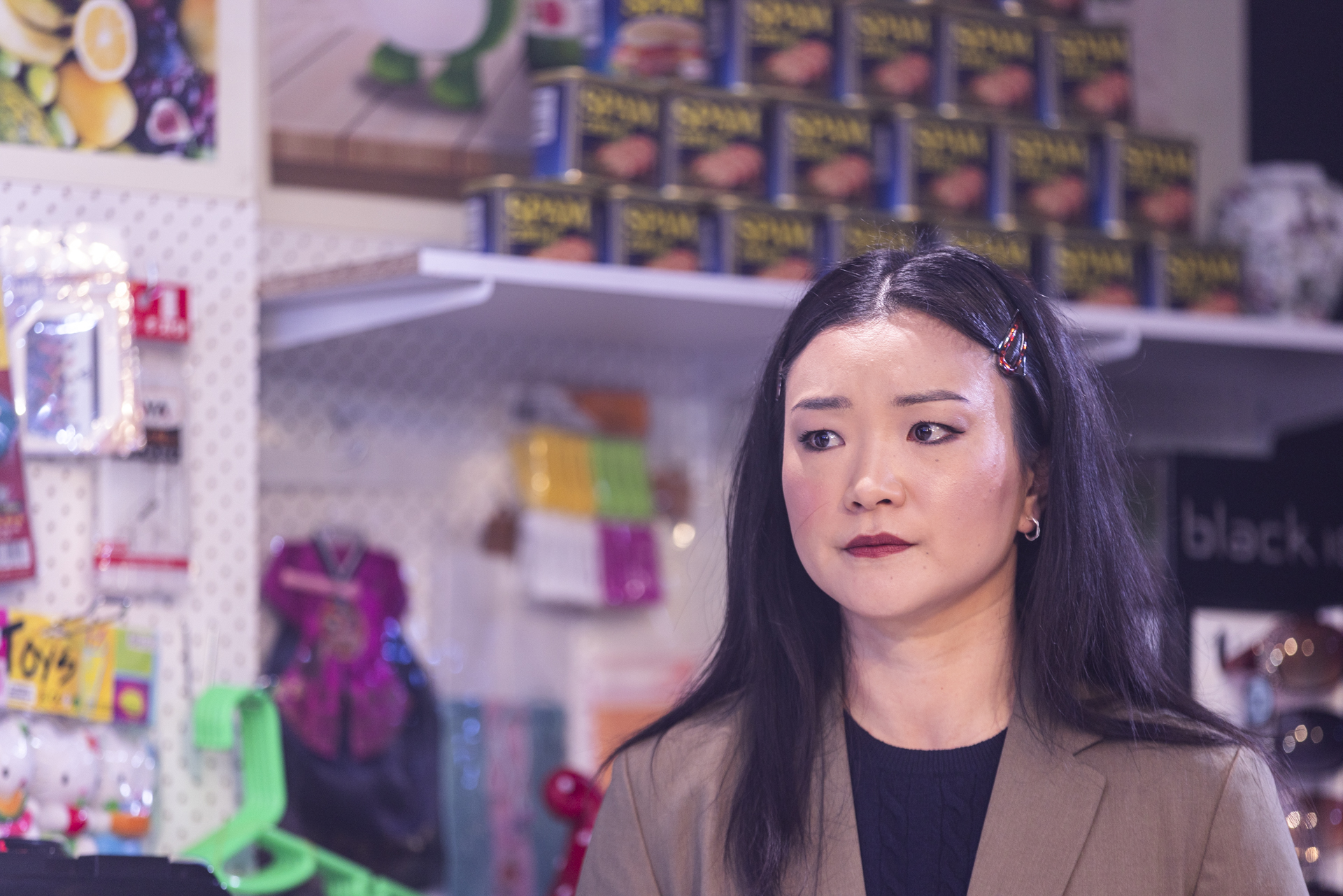What starts on a known path leads to a heartfelt, feel-good conclusion.
Koreaboo, written by and starring Michelle Lim Davidson and produced by Griffin Theatre Company, is an outstanding exploration of adoptee reconnection, Korean culture, and reclaiming one’s identity. Inspired by Davidson’s personal experiences, her chemistry with co-star Heather Jeong makes for compelling viewing that enriches ones understanding of family, sense of self, and Korean pop (“K-pop”).

Koreaboo takes its name from the term used to describe people enthusiastic about Korean culture, but with either no Korean heritage or no nuanced understanding of Korea. Davidson plays Hannah, an Australian-Korean adoptee who has travelled to Seoul to reconnect with her biological “umma” (mother) Soon Hee (Jeong). Soon Hee is far less excited about this reconnection; shacked up in a 24-hour Korean convenience store, she sees Hannah as an aforementioned Koreaboo. Their first encounter is frosty at best: inside Soon Hee’s convenience mart (stunningly designed by Mel Page), Hannah’s attempts to win Soon Hee over are undermined by her poor language skills, with her umma suggesting her Koreaboo visit Seoul’s tourist hotspots instead. A shared love of K-pop, and subsequent chance to combine Hannah’s Australian upbringing with her umma’s repressed creative skills, provides an outlet for the two to connect.

Davidson, who was adopted from Korea, uses her own experience to make the script feel real and honest. Hannah’s zealous personality makes her character endearing. At the same time, the script does not antagonise her umma for being distant. Instead, it explains her behaviour through Korean cultural expectations. It becomes clear that both women are struggling in different ways — Hannah feels left out of her heritage, while her umma feels held back by it. Neither is completely unhappy, but both sense things could be better. Davidson’s writing guides the audience through this emotional journey right alongside the characters. Despite this journey starting off stereotypically, the script retains its impact and is balanced with plenty of jokes that keep the play feeling light, poking fun at everything from the obsession with K-pop bands, to the oddities of Australian life, to Korea’s intense beauty and weight standards.
Davidson’s performance is sound, playing her semi-biographical role with the level of respect and understanding it deserves. Her tap dancing skills and willingness to satirise Korean culture are also notable, and she shares strong on-stage chemistry with Jeong, allowing their dynamic to shine in both comedic and dramatic moments. Jeong’s rang steals the scenes. Her character is delightfully unpredictable, and Jeong knows just how and when to time a punchline, deliver a song lyric, reveal a truth to Hannah or let a moment linger. Her controlled performance translates to a control over the entire performance, and she executes both with energy and wit. Measured direction from Jessica Arthur supports Davidson and Jeong in their endeavours.

Ultimately, Koreaboo is a sweet and charming production. Its script is a testament to those who have felt alone, and who have sought or are seeking reconnection with their families and cultures. For all, it offers plenty to think about regarding who we are, our sense of belonging, and who the hottest K-pop boy band member is.
